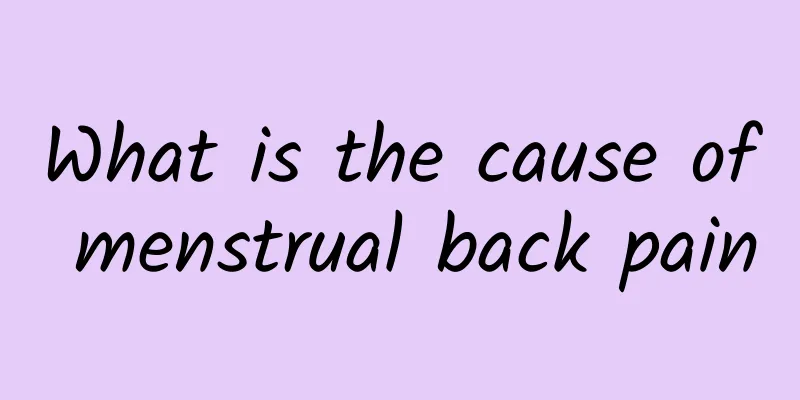What is the cause of menstrual back pain

|
Many women experience back pain during menstruation, which is mainly related to physiological and hormonal changes. During menstruation, the hormone levels in women's bodies change significantly, especially the increase in prostaglandins, which causes uterine contractions and leads to pain in the lower abdomen and waist. This pain can sometimes be like an uninvited guest, quietly knocking on the door when menstruation comes. On a physiological level, the uterus contracts to help menstrual blood drain out of the body. But when the contraction is too intense, it may affect the surrounding nerves and muscles, causing back pain. Sometimes, back pain may also be related to the position of the uterus. For example, women with a retroverted uterus may be more likely to feel back discomfort during menstruation. In addition to physiological reasons, lifestyle and psychological state may also aggravate low back pain during menstruation. Stress, lack of sleep or poor sitting posture may make the pain worse. Just like a friend visiting you when you are the busiest, low back pain often appears when you least want it. Maintaining good living habits, such as regular work and rest, moderate exercise and relaxation, can help relieve this discomfort. If your back pain is severe enough to interfere with your daily life or is accompanied by other uncomfortable symptoms, such as unusual bleeding or severe abdominal pain, it is best to seek medical attention. Your doctor can perform tests to rule out underlying health problems, such as endometriosis or pelvic inflammatory disease. In daily life, hot compresses, gentle massage, and proper rest are good ways to relieve low back pain. Just like giving a cup of hot tea to a tired friend, these methods can help relax tense muscles and relieve pain. In terms of diet, you can appropriately increase foods rich in magnesium and calcium, such as nuts and green leafy vegetables, which can help relieve muscle spasms and pain. Lower back pain during menstruation is a common problem that should not be ignored. By understanding its causes and taking effective relief measures, you can better get through this menstrual period. Remember, it is important to care for your body as you would for your closest friends. I hope this article can provide you with some useful suggestions so that you can get through each month with ease. |
<<: What is pregnancy and menstruation?
>>: Brown discharge with a fishy odor
Recommend
Does right ovarian cyst have a big impact on pregnancy? What are the hazards?
Does right ovarian cyst have a big impact on preg...
Experts analyze the main causes of cervical hypertrophy
Cervical hypertrophy is a common gynecological di...
Matcha fights obesity and prevents the three highs. Here are 6 benefits for you! Experts: These three groups should pay attention
Matcha lovers, take a look! Matcha is a healthy d...
How much does it cost to treat cervical erosion?
The cost of treating cervical erosion is the firs...
To relieve dysmenorrhea, women may try sleeping naked
Primary dysmenorrhea troubles many young women, c...
What medicine should I take to treat uterine fibroids? What medicine is effective for uterine fibroids?
What medicine should be taken to treat uterine fi...
Patients with pelvic inflammatory disease should pay attention to washing underwear
The hygiene of the underwear of patients with pel...
How long after abortion can I get the bivalent vaccine?
The bivalent vaccine refers to the bivalent HPV v...
Research on improving fertility after artificial abortion
Nowadays, many women do not take contraceptive me...
How to reduce the harm after abortion? There are 5 major risk factors in abortion
Abortion is used as a remedy for unplanned pregna...
What are the symptoms and reactions of menstruation?
Women usually experience a series of physical and...
Cleanse your stomach after a big bite, and if you want to lose weight, oatmeal has 4 great weapons to help you eat better!
I have been eating too much delicious food recent...
What are the causes of miscarriage in early pregnancy? There are 5 reasons
Most early miscarriages are spontaneous miscarria...
What are the dangers of artificial abortion?
In recent years, the probability of artificial ab...
Factors causing recurrence of cervical warts
The factors that make cervical warts uncurable fo...









